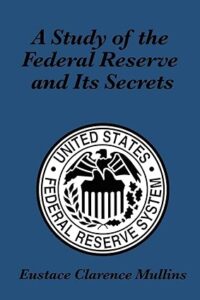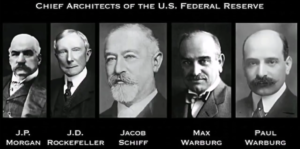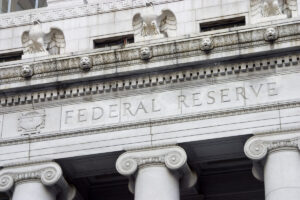Understanding Modern Banks
Defining Modern Banks
Present-day banks, often termed as “debt shops,” differ greatly from traditional notions of commerce, engaging in complex financial maneuvers rather than straightforward transactions.
The Enigma of Modern Banking:
Defined by the cashier of a major Midwestern bank as a cryptic series of motions, modern banking appears elusive, operating beyond clear comprehension.
Etymology and Essence
The term “bank,” derived from “banca,” historically associated with the money changers’ benches, finds its roots in ancient financial practices, notably referenced in significant events like the biblical story of Christ overturning the benches of money changers.
Philosophical Interpretation
Philosophically, banks were deemed as custodians of depositors’ funds, engaging in responsible lending with proper security, thereby ensuring both safety and interest for depositors.
Divergence from the Ideal
However, modern banks deviate from this ideal.
The practice of these institutions does not align with the traditional philosophical concept of banks as secure repositories.
Modern Banking Practices
In reality, depositors in modern banks essentially become creditors, lacking assured return guarantees.
These banks engage in a high-stakes game, creating multiples of loans based on the actual deposited amount, resulting in a manufactured financial system detached from tangible assets.
To understand modern banks is to comprehend their divergence from conventional definitions and practices, creating a financial ecosystem fundamentally different from its philosophical origins.
The vast disparity between the philosophical understanding and the contemporary reality exposes the complex nature of today’s banking mechanisms.
For a deeper dive into the intricacies of modern banking, explore A Study of the Federal Reserve and Its Secrets.

Expansive Role of Banks
Banks extend their influence far beyond traditional operations, engaging in various activities:
- manufacturing money
- controlling foreign
- currency value
- infiltrating industries by placing bankers on corporate boards
- shaping media narratives
- influencing political landscapes
- manipulating the economy through credit creation
They deliberately flood the nation with credit, causing economic collapses that allow them to confiscate tangible wealth.

Private Property
Judicial Proof of Deposits
The Missouri Appellate Court in 1923 clarified the nature of bank deposits, stating that once money is deposited, it becomes the bank’s property.
This legal stance, echoed by various State Supreme Courts, confirms that deposits are essentially debts owed by banks to depositors.
Purpose of Bank-Issued Money
Banks primarily create money through interest-bearing loans, fostering a system where interest is levied on every transaction involving this currency.
Understanding Usury
Usury, a transgression against the commandment “Thou shalt not steal,” embodies three immoral practices:
- Charging exorbitant interest rates
- Imposing interest on non-productive or destructive loans.
- Demanding interest on fictitious money created by the lender, unjustly reaping benefits where no initial investment was made.
The activities of modern banks exceed conventional notions, blurring lines between financial institutions and authoritative entities.
Their practices challenge conventional ethical and legal frameworks, raising concerns about usurious tendencies and the alteration of economic landscapes.
For an in-depth exploration of the ethical dimensions and legal intricacies of banking practices, delve into The Secrets of the Federal Reserve.
Usury and Morality
Usury contradicts not only moral principles but also Christian teachings.

Permissible Interest
Charging interest becomes permissible when real money is lent for productive purposes at a reasonable rate. In modern society, money serves as a medium for transferring claims or titles to wealth.
For instance, lending a bushel of seed corn to a neighbor farmer, expecting a return of the initial bushel along with a fair portion of the new corn harvested, exemplifies a legitimate use of interest.
The lender’s foregone use of the original corn enabled the borrower’s production.
Opposition to Banking Reform
The primary adversaries to essential banking reforms and the establishment of an honest monetary system are those benefiting from the intricacies of the current banking structure.
This system cunningly secures percentages on transactions and obtains legal property titles without the victims comprehending the underlying mechanisms.
It’s evident that usury, often at odds with moral and Christian values, extends to financial systems, creating complexities that are both subtle and deeply entrenched.
These intricacies serve the interests of a select few while remaining obscure to the general populace.
For further insights into the ethical dilemmas surrounding usury and the complexities of modern banking systems, consider exploring Wealth, Virtual Wealth and Debt, by Frederick Soddy

The Elusive Nature of Modern Banking Ethics
The multifaceted nature of modern banking goes beyond mere monetary transactions; it delves into ethical, moral, and societal realms.
Usury, often at odds with moral principles and Christian teachings, forms the backbone of many financial systems, quietly influencing economic landscapes.
The permissible nature of interest, rooted in productive lending with real money, contrasts sharply with the exploitative practices prevalent in modern banking.
While essential banking reforms are crucial for establishing an honest monetary system, opposition arises from those reaping the benefits of the current complex and opaque financial structures.
As Frederick Soddy astutely observed, the resistance to reform stems not from ignorance but from well-informed individual self-interest.
Intricacies within the banking sector, camouflaged beneath financial jargon and subtle mechanisms, perpetuate a system that favors a select few, leaving the wider population unaware of its ramifications.
Understanding these complexities is pivotal in advocating for ethical reforms within the financial domain.
For a more comprehensive exploration of the ethical intricacies within modern banking systems and the nuances of usury, consider delving into The Full Text of the Laws Relating to National Banks.
Stay tuned for our next blog post, diving deeper into the labyrinthine world of Genesis of American Banking.

